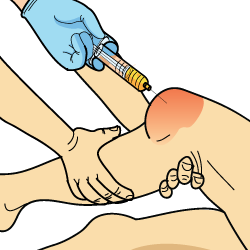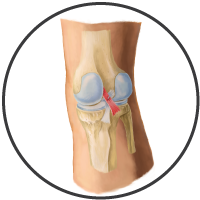Cortisone Injections

Medically, cortisone is an anti-inflammatory drug that can be injected directly into damaged tissue to reduce inflammation and allow a quick return to normal function. It has the advantage of being fast-acting and even though it's technically a steroid, it's not a performance-enhancing drug because all it does is reduce inflammation and allow normal function to resume.
But the ease with which you can get a cortisone injection isn't entirely good. One concern with relying too heavily on it is that it doesn't cure what caused your injury. It merely buys you time to address an underlying strength, flexibility or biomechanical problem. If you relax and view no pain as the same thing as being cured, the problem will most likely return.
Cortisone also carries risks. The biggest of all the potential negatives, is that repeated use of cortisone into the same joint can erode cartilage. Cartilage isn't the only thing that's vulnerable to cortisone-induced damage. It can also weaken the tendons and increase the risk of rupture.
Another potential side effect of cortisone is the atrophy of subcutaneous fat, which can take years to get back to normal. For most parts of the body, that's just a cosmetic tissue, but for an injury like a PCL tear, cortisone injections can be problematic because a critical pad of fat that surrounds the knee and cushions the meniscus has an increased possibility of atrophy causing further knee problems.

